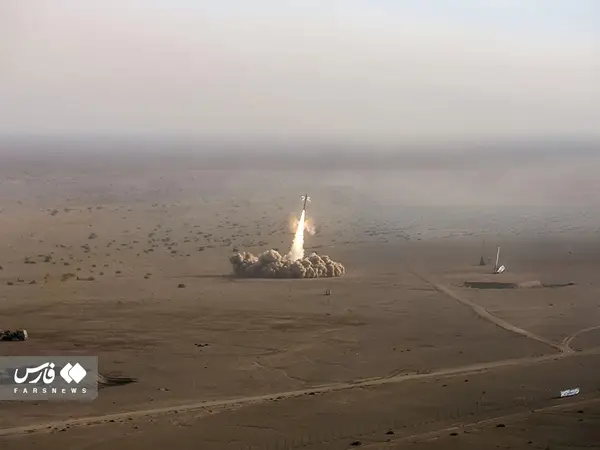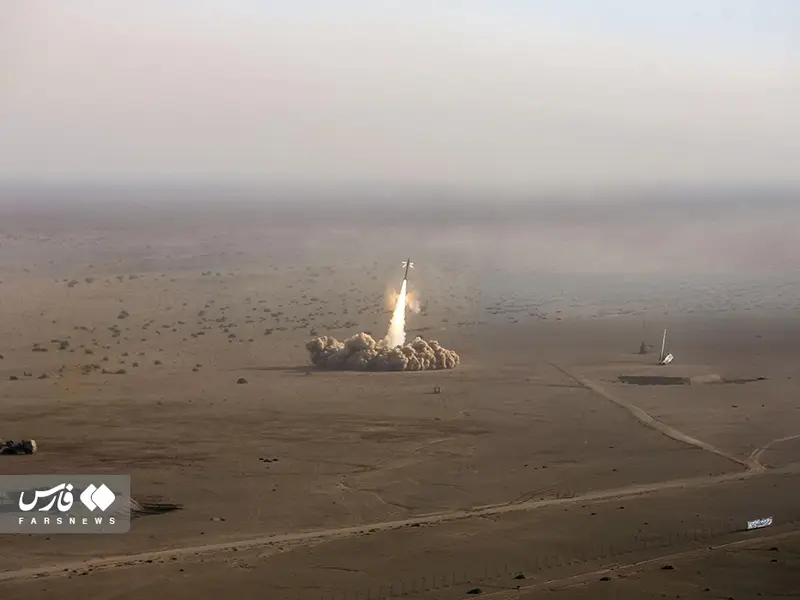Iranian media say two bases of a Baluchi militant group in Pakistan have been struck on Tuesday, just one day after attacks on alleged 'terror' targets in Iraq and Syria.
Although Iranian state media and news websites affiliated with the IRGC were the first to report the missile and drone attacks, they did not explicitly say that Iran conducted the strikes. Some news websites in Tehran, however, did report that IRGC launched the attack.
However, a statement by the Pakistani government condemned what it said was Iran's violation of its airspace.
"Pakistan strongly condemns the unprovoked violation of its airspace by Iran and the strike inside Pakistani territory which resulted in death of two innocent children while injuring three girls. This violation of Pakistan’s sovereignty is completely unacceptable and can have serious consequences," Islamabad's statement said.
"These bases were hit and destroyed by missiles and drones," Iranian state media reported, without elaborating. The state-run IRNA news agency and state television had said that missiles and drones were used in the attack. IRNA later pulled the report.
In a statement in response to the attack, Jaish al-Adl said the strikes hit the homes of two of its members, killing two children and injuring two women and a teenage girl.
"At least six suicide drones and several missiles targeted homes where the families, including children and spouses, of members of the Jaish al-Adl organization were residing," read the statement. The group decried the Islamic Republic regime for targeting children, women, and innocent people, saying that "the Revolutionary Guards and decision-makers should be aware that such heinous attacks... will strengthen the determination of the Jaish al-Adl to overthrow their palace of tyranny."
Jaish al-Adl, or the “Army of Justice,” is a Sunni militant group founded in 2012 which largely operates across the border in Pakistan. The group has claimed bombings and kidnapped Iranian border police in the past. Iran has fought in border areas against the militants, but a missile-and-drone attack on Pakistan would be unprecedented for Iran.
Nour News, affiliated with Iran's Supreme National Security Council, said the attack by Iran's Revolutionary Guards targeted bases in the in Zarghoon Mountains in the east of the Quetta District in Pakistan's Balochistan Province.
Nour News claims the Pakistani government does not have full control over this region, and it has turned into a safe haven for militant groups.
Also on Tuesday, Iran's Foreign Minister Hossein Amir-Abdollahian met his Pakistani counterpart Jalil Abbas Jilani on the sidelines of the World Economic Forum (WEF) in Davos, Switzerland. The attack also happened two days after Hassan Kazemi-Qomi, the special representative of the Iranian president for Afghanistan affairs, arrived in Islamabad at the head of a political delegation upon an invitation by his Pakistani counterpart Asif Durrani.
However, Pakistan's statement made it clear that Tehran did not warn Islamabad about the impending attack. "It is even more concerning that this illegal act has taken place despite the existence of several channels of communication between Pakistan and Iran. Pakistan's strong protest has already been lodged with the concerned senior official in the Iranian Ministry of Foreign Affairs in Tehran."
The strikes came a day after Iran's Revolutionary Guards attacked targets in Iraq and Syria with missiles which Tehran claimed targeted an Israeli “spy center” but Iraqi Kurdish leaders condemned the ballistic missile launch that killed a wealthy and influential member of their community.
Iran's Revolutionary Guards and regime officials in Tehran took a victory lap on Tuesday while also highlighting that they fired ballistic missiles at northern Syria, in their longest-range attack to date. They claimed they hit ISIS bases, where Afghan Islamic State forces were being trained.
The Afghan ISIS had claimed responsibility for a January 13 twin suicide bombing in Iran that killed nearly 100 people.

